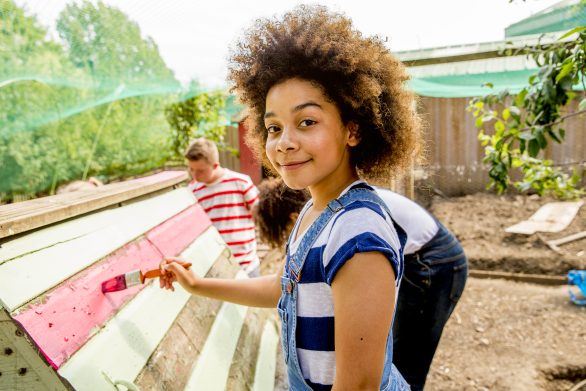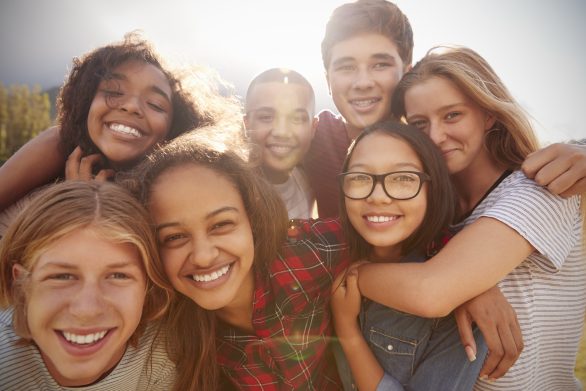
1 youth in 7 lives in a low-income household
According to the Observatoire Jeunes et Société, 14% of young people in Quebec live in low-income households.
- Observatoire Jeunes et Société, 2019, “Proportion of adolescents age 11 to 17 living in low-income households according to the Low Income Measure (LIM), 2006 to 2016 (in percentages)”, table by the INRS for the OJS, data produced by Statistics Canada, from the 2006 and 2016 surveys and the 2011 National Household Survey.
1 high school student in 4 experiences low self-esteem
According to the Rosenberg Scale.
- Observatoire Jeunes et Société, 2019, “Proportion of secondary school students who have low self-esteem according to the Rosenberg Scale, 2016-2017 (in percentages)”, table by the INRS for the OJS, from public data from the Québec Health Survey of High School Students (QHSHSS), from the Institut de la statistique du Québec (ISQ), 2016-2017.
1 youth in 3 lives with psychological distress
According to the Observatoire Jeunes et Société, more than one-third of young people score high on the psychological distress scale.
- Observatoire Jeunes et Société, 2019, “Proportion of youth age 15 to 17 who score high on the psychological distress scale, 2014-2015 (in percentages)”, table by the INRS for the OJS, from public data from the 2014-2015 Québec Population Health Survey (QPHS).
Travel contributes to the well-being of young people
5 indicators highlighting the need to create a more equal and open world for young people from disadvantaged backgrounds
Education
22%
of young people in Quebec from disadvantaged backgrounds leave school without a diploma or qualifications.
mental health
2/10
of secondary students in Quebec have at least one diagnosis of a mental health illness.

Adolescence: an essential time of life, between fragility and hope
In spite of the prejudices that surround it, adolescence is one of the richest periods in a person’s life. Not only is it a period of significant physical changes, but some neuropsychological studies also show that teens’ brains undergo a major “reshuffling” during this phase of existence. Looking to build their adult life while discovering themselves, teens yearn to leave the family environment and to shift toward their peers. The world around them takes on a whole new meaning and invites them, little by little, to discover it.
We contribute to young people’s well-being with travel experiences
The 7 psychological needs of young people, according to Michel Fize
Need for Trust
Need for Dialogue
Need for Security
Need for Autonomy
Need for Taking responsability
Need for Affection
Need for Hope
A team of experts who guarantee the impact of our initiatives

Leading experts have been mobilized to not only contribute scientific support to our educational pathway, but also to measure the impact of our approach and to validate our intentions toward young people, their families and their schools.
